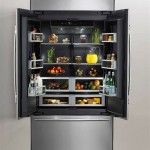Interior Doors: A Comprehensive Guide
Interior doors serve a vital purpose in any home, providing privacy, defining spaces, and enhancing the overall aesthetic appeal. Whether you're building a new home or renovating an existing one, choosing the right interior doors is crucial. This comprehensive guide will explore the various aspects of interior doors, from materials and styles to functionality and considerations for choosing the perfect doors for your needs.
Types of Interior Doors
Interior doors come in a wide array of types, each offering unique advantages and aesthetic considerations. Popular types include:
- Solid Core Doors: Known for their durability and sound insulation, solid core doors are typically made from wood or composite materials. They are ideal for high-traffic areas or spaces requiring a high level of privacy.
- Hollow Core Doors: Lighter and more affordable than solid core doors, hollow core doors are typically made from a frame with a honeycomb or foam core. They are suitable for areas with less noise concerns and offer a cost-effective solution.
- French Doors: These elegant doors consist of two panels that swing open, creating a grand entrance and maximizing natural light. They are often used for living rooms, dining rooms, or bedrooms.
- Pocket Doors: These space-saving doors slide into a wall pocket, eliminating the need for swinging space. They are ideal for small spaces or areas where maximizing floor space is a priority.
- Barn Doors: These rustic-inspired doors slide along a track on the wall, adding a touch of farmhouse charm. They are often used for closets, kitchens, or bathrooms.
Interior Door Materials
The material of an interior door significantly influences its durability, appearance, and cost. Common materials include:
- Wood: Natural wood doors offer timeless beauty, warmth, and durability. They are available in various species, each with its unique grain pattern and color. Popular choices include oak, maple, cherry, and pine.
- Composite: Composite doors are made from a combination of wood and other materials, such as fiberglass or plastic. They offer enhanced durability, moisture resistance, and affordability. Composite doors are often chosen for their low maintenance and resistance to scratches and dents.
- Glass: Glass doors provide a contemporary and elegant look, allowing natural light to flow through rooms. They can be framed with wood or metal and come in various designs, including frosted, patterned, or stained glass.
- Metal: Metal doors are often used for modern or industrial interiors. They are durable, resistant to fire, and offer a sleek and minimalist design. Metal doors can be made from steel or aluminum and come in various finishes.
Interior Door Styles
Interior door styles play a significant role in defining the character and overall aesthetic of your home. Some popular styles include:
- Traditional: Traditional doors are characterized by ornate details, such as raised panels, molding, and decorative hardware. They create a timeless and elegant look, suitable for homes with a classic or formal design.
- Modern: Modern doors feature clean lines, minimalist designs, and often incorporate materials like glass or metal. They create a sleek, contemporary feel and are well-suited for modern or minimalist homes.
- Rustic: Rustic doors often feature rough-hewn wood, distressed finishes, and simple hardware. They evoke a sense of warmth and nature, complementing farmhouse, cabin, or cottage styles.
- Contemporary: Contemporary doors blend elements of modern and traditional styles, creating a balanced and sophisticated look. They may feature simple panel designs, subtle molding, and modern hardware.
Considerations for Choosing Interior Doors
When selecting interior doors for your home, consider the following factors:
- Budget: Door prices vary widely depending on materials, style, and size. Determine a budget upfront and consider the cost of installation and hardware.
- Style: Choose door styles consistent with the overall style of your home. Consider the architectural details, furniture, and color palette.
- Functionality: Consider the purpose of each door. For high-traffic areas, consider durable and soundproof doors. For private spaces, ensure the door offers adequate privacy.
- Maintenance: Different materials require different levels of maintenance. Wood doors require regular finishes, while composite doors are generally low-maintenance.
- Light: Consider the amount of light you want to allow through each door. Glass doors maximize natural light, while solid wood doors provide privacy.
- Hardware: Handles, knobs, and hinges are essential elements of an interior door. Choose hardware that complements the style of your doors and is easy to clean and use.
Deciding on the right interior doors is a significant step in creating a home that reflects your personal style and meets your needs. By considering the factors discussed above, you can make informed choices and enjoy the beauty and functionality that interior doors bring to your space.

4 Ft X 8 White Shaker 1 Panel Solid Core Primed Mdf Prehung Interior French Door Doors

Interior 96 Inches Doors

Mmi Door 36 In X 96 Smooth Caiman Right Hand Solid Core Primed Molded Composite Single Prehung Interior Z0364255r The Home Depot

Jeld Wen 36 In X 96 Monroe Primed Right Hand Smooth Solid Core Molded Composite Mdf Single Prehung Interior Door Thdjw137001007 The Home Depot

Oxford 96 Walnut 3 Panel Shaker Interior Door 1 4

Reliabilt Shaker 36 In X 96 5 Panel Square Solid Core Primed Pine Wood Right Hand Inswing Single Prehung Interior Door The Doors Department At Com

Jeld Wen 36 In X 96 Monroe Primed Smooth Solid Core Molded Composite Mdf Interior Door Slab Thdjw137001107 The Home Depot

Discover The Contemporary Modern Interior Door By Trimlite Quality Single Entry Crafted From Wood Paint Grade

Krosswood Doors 32 In X 96 Shaker 5 Panel Primed Solid Hybrid Core Mdf Wood Interior Door Slab Kw Sh151 2880 Slb The Home Depot

Sartodoors Double French Interior Door 84 X 96 Black Lucia2552dd Blk 8496 Zoro








